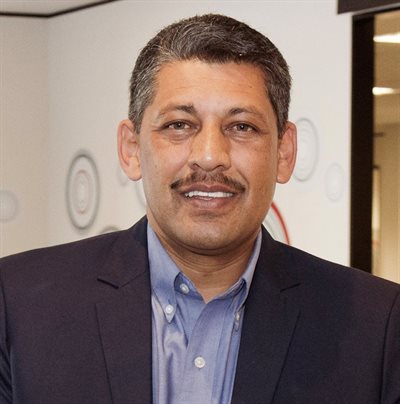
Luke Woodhouse, chief financial officer of Bonitas Medical Fund
Luke Woodhouse, chief financial officer of Bonitas Medical Fund, explains: “2019 was a trying year for the South African economy. Business confidence was low, given the deterioration in government fiscal strength and weak economic outlook. Unemployment continued to increase up to a rate of 30.1% (as of March 2020), which inhibited access to private healthcare. Despite these challenges, the fund reported a net surplus of R186.1m for the 2019 financial year on the back of consistent and credible financial policies, which helped to preserve our financial stability and reserve base. The surplus will be invested back into the fund to ensure that our members continue to access affordable quality healthcare – especially within the context of the current economic climate.”
Woodhouse summarised the stand-out figures as follows:
- R1.3bn gross healthcare result
- Reserves at R4.3bn (2018: R4.1bn)
- A net surplus of R186.1m (2018:R164.8)
- Solvency ratio of 24.9% (2018:25.2%)
- R41.2m gross recoveries from fraud, waste and abuse for the year and
R124m over the last four years
- Since inception of the fraud, waste and abuse programme four years ago, R393m has been identified as savings as a result of altering claiming behaviour in the industry
- Strategic purchasing yielded savings of R370.4m in 2019 (2018: R290m), bringing the total savings over the four-year period to R902m through mutually beneficial hospital and specialist service provider negotiations.
- An investment return of R420.1m (2018: R197.4m)
- Organic growth targets, ultimately growing by 7,758 members over the 12-month period. Unfortunately, this growth did have a negative short-term impact on solvency as reserves on new members are built over the medium to long-term but are immediately factored into the solvency calculation
- Of the risk contributions, 92.3% (2018: 91.1%) was used to fund healthcare expenditure
Customer satisfaction returns

Lee Callakoppen, principal officer at Bonitas
Bonitas received a top rating from South Africans in the latest SAcsi results. The SAcsi evaluates overall satisfaction of members with their medical aid schemes. At least 1,707 members were polled across five leading medical schemes (Bonitas, Discovery, Gems, Medihelp and Momentum) with Bonitas emerging top of the list.
Bonitas was also the recipient of the Ask Afrika Orange Index Award in the healthcare sector. The award was based on member feedback regarding service excellence – placing Bonitas ahead of all competitors in the medical scheme industry. “We make a concerted effort to ensure that we act in the best interest of our members at all times and, to receive recognition for providing them with good service, motivates us to continue to be innovative and customer-centric in our approach so that we can make a meaningful impact on their lives,” says principal officer Lee Callakoppen.
This was clearly demonstrated as the fund has made several advancements in customer response management and introduced a range of self-service channels over the past 12 months. “We continue to place our members at the heart of our business and, as such, we have been able to offer them a range of support during the pandemic. This includes access to free virtual GP consultations through the Bonitas Member App, a comprehensive maternity support programme including 24/7 helpline and free discount vouchers on groceries and household items.”
What influences our success?
Poor economic growth
“It is not becoming any easier,” Woodhouse explains. “Stagnant economic growth impacts the affordability of medical aid for members, resulting in the transfer to more affordable options, limited entry of new members and, with increased job losses, a reduction in membership numbers. Similarly, fewer new members join medical aid schemes. These elements paint a challenging landscape, which has been further impacted by the Covid-19 pandemic.
“The impact of the financial crisis and the resulting volatility on stock markets could impact our investment return. The fund is ensuring that the correct investment strategy is followed to ensure returns on members’ funds are maximised but, at the same time, ensuring the reserves are preserved and protected from volatility in these uncertain times. This will guarantee the long term sustainability of our reserves.”
Hospital negotiations
“There continues to be a high utilisation of healthcare services, especially in terms of mental health admissions and oncology - which is a high cost driver. However, Bonitas continues to negotiate robustly with hospitals in order to obtain the best possible rates. We’ve also engaged with hospital groups to waive network hospital restrictions during this time so that our members continue to access quality, private healthcare,” Callakoppen said.
Lifestyle diseases
One of the leading health trends observed worldwide is the steady increase in non- communicable diseases (NCDs) such as diabetes, high blood pressure and various cancers. Around 80% of these conditions are caused by four main lifestyle risk factors, namely smoking, poor diet, lack of exercise and obesity. This results in higher utilisation of medical services, notably in-hospital admissions. Bonitas Managed Care initiatives have produced excellent results in this respect with more beneficiaries joining programmes to manage their chronic conditions such as diabetes, HIV/Aids and back and neck pain, in the most clinically-appropriate and affordable way.
Hospital costs deplete reserves
Bonitas’ claims loss ratio exceeded budgeted levels by 1.3% as hospital costs and utilisation continued to place pressure on reserves. This, despite an increased focus on Managed Care programmes, hospital negotiated pricing and loss-making option initiatives.
Fraud, waste and abuse
Large-scale fraud and abuse of members’ benefits adversely impact the financial position of medical aids, which may result in higher costs for members. FWA costs the industry more than R22bn per year.
- The fraud identified by the fund was R10.7m by medical facilities
- R57.5m by medical professionals
- R17.7m pharmaceutical fraud
The repercussions of fraud are widespread and because medical schemes are not-for-profit and owned by their members, when a scheme is defrauded or money is wastefully spent, it directly impacts the funds available to pay for member claims. It is estimated the fund saved over
R400m for the period January 2016 to September 2019 through stringent forensic analytics and positive claim change behaviour.
Value-added products
“We ran several initiatives during the year to improve the range and appropriateness of complementary products to members. We do not believe in charging our members’ subscription fees and they do not have to earn points to be rewarded. These included MedGap Gap Cover, Sanlam Indie Life Cover, funeral cover, Mi-Way short-term insurance and over 300 retail discount vouchers every month,” Woodhouse said.
The impact of Covid-19
“Even though our financial results were finalised before the Covid-19 pandemic, it is necessary to mention the impact of the coronavirus outbreak. Given the uncertainty and the immediate impact on Bonitas’ reserves, we have implemented critical risk management mitigations to protect and safeguard the sustainability of the fund and to ensure that members, who contract the virus, have access to quality and affordable care,” Callakoppen explained.
“In the corporate space, we have seen several companies scrambling to ensure that their employees are covered, which has resulted in a spike in membership. Management, therefore, anticipates opportunities and risks to both membership growth and retention with regards to the current economic climate.”
Callakoppen says: “My primary focus is to ensure Bonitas remains sustainable. However, my immediate focus areas are driving product leadership, connecting with members and ensuring operational excellence .I want to express my unquestionable commitment to strong governance and ethics. These will remain our moral compass as we build on the mandate of making quality and affordable healthcare accessible to all South Africans.”
